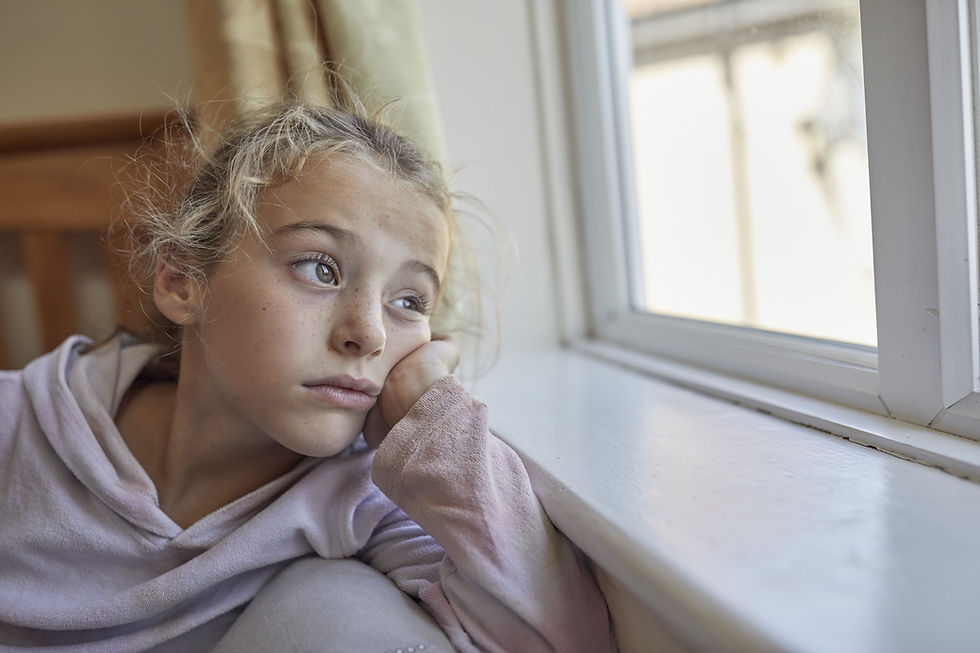NSPCC Helpline reports rise in adult concerns about children left home alone
- Love Ballymena

- Jul 30, 2024
- 3 min read

For many parents and carers in Northern Ireland, July and August can be particularly difficult months as they try to balance the competing pressures of work and childcare.
Some may feel unsure about whether their child is ready to be left home alone or they may have concerns about another child being left unsupervised.
As the summer holidays continue, the NSPCC is urging parents to think carefully about whether their child is ready to be left by themselves.
In the last year, the NSPCC Helpline has seen a 65% rise in the number of contacts from adults throughout the UK with concerns about children being left home alone.
Between April 2023 and March 2024, the service, which provides help and advice for adults with concerns about the wellbeing of a child, received 7,802 contacts from throughout the UK on the subject, compared to 4,717 contacts over the previous 12 months.
More than half of these contacts (51%) on children being left home alone were deemed serious enough for the NSPCC Helpline to make a referral to a local agency or service, with a view to further action being taken.
The increase in the number of contacts on this issue to the Helpline could be due to a number of factors, including a recent NSPCC Helpline marketing campaign, increased service capacity and greater public awareness about the risks of leaving children home alone.
There is no legal minimum age for leaving children home alone, but it is against the law to leave a child alone if it puts them at risk. The NSPCC would not recommend leaving any child under the age of 12 at home unsupervised, especially for extended periods of time.
Infants and young children aged 0 - 3 should never be left alone – even for a few minutes. This includes visiting next door or leaving children in your car while you run into a shop.
For older children there is no single rule for all, especially if a child has complex needs. It is up to parents and carers to decide when and where it is safe and appropriate for their child to be left at home by themselves.
Naturally, that could leave adults feeling uncertain about whether their child is ready to be left unsupervised.
A child who doesn’t feel comfortable should never be left home alone, and for those children who do feel comfortable it is still vital they are left with contact numbers for a parent or carer and another trusted adult in case they ever feel unsafe, uncomfortable or unsure about something.
The NSPCC’s website (www.nspcc.org.uk and search ‘home alone’) has tips for parents to help a young person left at home alone feel safe, as well as a quiz to assess if a child is ready to be left unsupervised.
That’s why it’s important to have open and honest conversations with children about how they might feel being given the responsibility of staying home alone for a period of time. If they’re not comfortable, then further considerations need to be made.
Kam Thandi, Head of the NSPCC’s Helpline said:
“It can be hard for parents and carers to know the right age to leave their child home alone as every child is different, and the first time being left unsupervised will differ for every family.
“It is vital that both the child and adult feel comfortable with any decision that is taken, and that if a young person is to be left home alone, they know how to contact a trusted adult and what to do in an emergency.
“Should leaving a child alone be the only option for an adult, then the NSPCC’s website (www.nspcc.org.uk) has tips for parents to help ensure the young person feels safe. This includes checking in with them regularly and practicing what to do in an emergency, should one happen while you are away.”
Adults with concerns about a child can contact the NSPCC Helpline by calling 0808 800 5000 or emailing help@NSPCC.org.uk. Childline is available for young people via the phone on 0800 1111 and online where there is a 121 chat on the Childline website(www.childline.org.uk).



